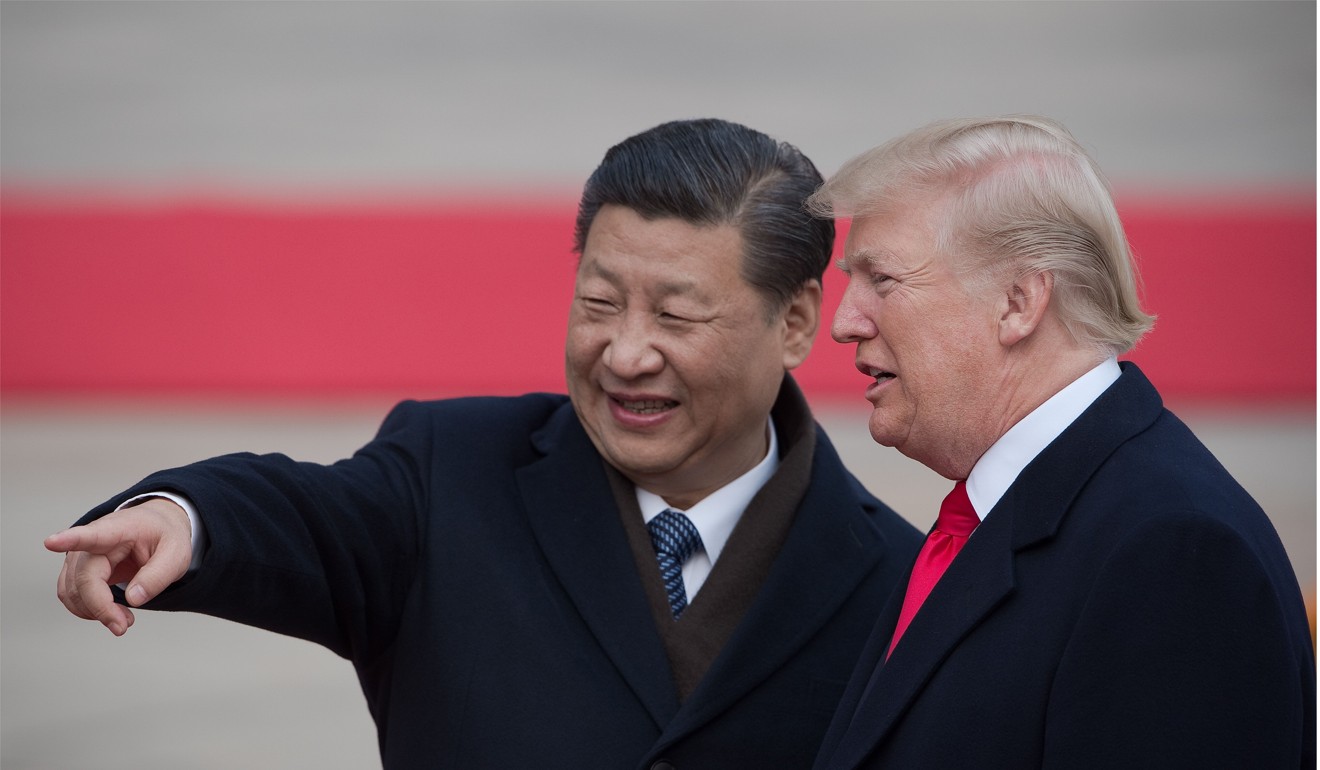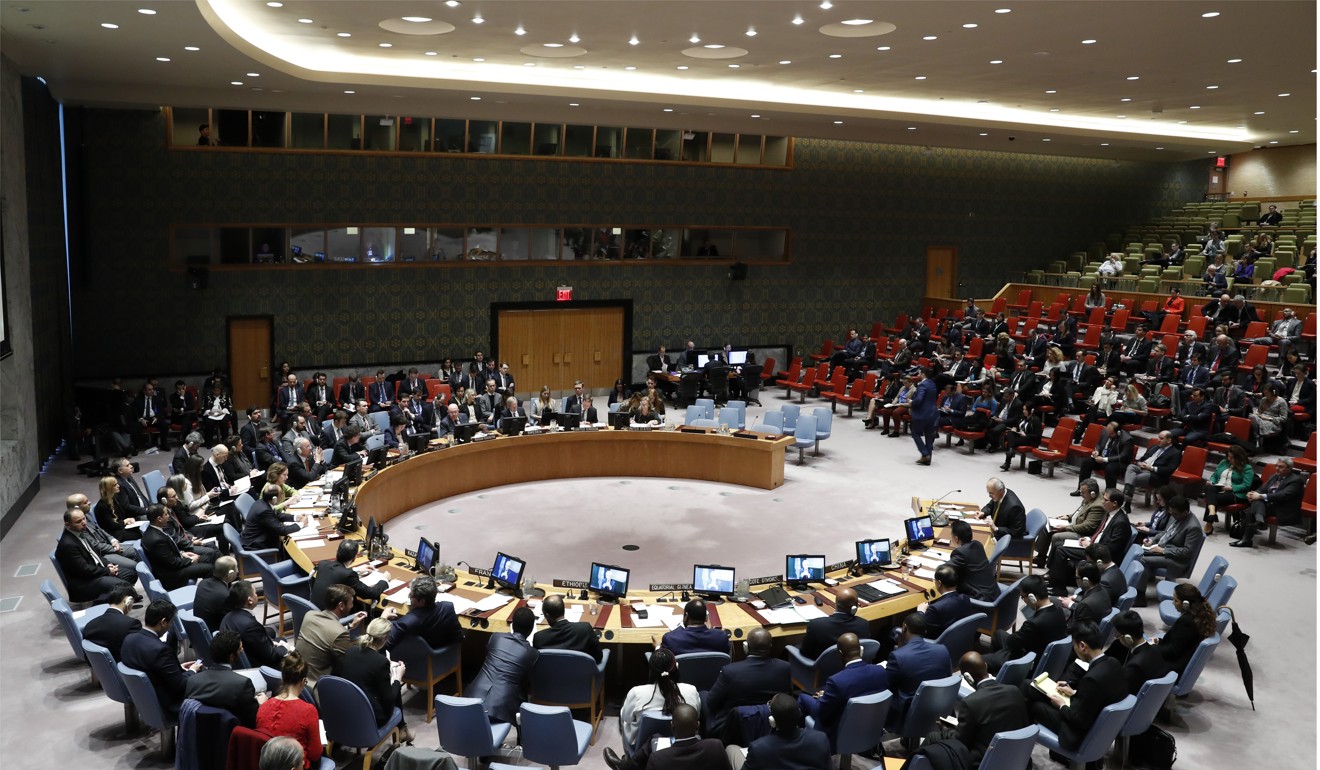
How two documentary films hitting US are opening windows on modern China in the age of Trump
More Americans are about to learn about China as Miao Wang’s Maineland and Hao Wu’s People’s Republic of Desire are set to reach US cinemas within days of each other
More Americans are getting schooled on China as two feature-length documentaries by mainland Chinese directors in the United States make their debuts within a few days of each other.
Maineland by Miao Wang, about Chinese students attending a boarding school in a rural town in the US state of Maine, begins its theatrical release in New York City on March 16. People’s Republic of Desire by Hao Wu, recently screened as a world premiere at the annual South by Southwest festival of film, music and interactive media, reveals a dystopian present at the intersection of capitalism, social media and social alienation.
Hitting US screens as tension between Beijing and Washington reaches a boiling point, the films are well-timed.
US President Donald Trump made China-bashing part of his winning political campaign in 2016 and, after a brief period of good will and adulation of his Chinese counterpart Xi Jinping, Trump appears set to direct much of his current punitive trade actions against Beijing.
Meanwhile, there’s been a chorus of alarm raised by ranking US lawmakers from both political parties. Suspicion around China’s attempts to acquire US technology has pushed some of them to sponsor legislation that may put limits on visas for Chinese students, making Maineland particularly relevant.
The film puts a human face on the cohort of Chinese who will need to navigate this cross-cultural turbulence and face suspicion over whether they are part of what many US politicians are calling Beijing’s influence operations in the United States.
Documentary filmmaker chronicles lives of China's left-behind children
While some of the hundreds of thousands of mainland Chinese students in the US might have dual missions, it is difficult to imagine Wang’s subjects ever being one of them.
Focusing on two students, Wang juxtaposes their wealthy and privileged lives in fast-paced urban China against their school years in a New England community with one commercial street.
Her examination of two subjects – Xinyi (or “Stella”), a social butterfly and Junru (or “Harry”), an introverted philosopher – brings much needed nuance to a demographic that is increasingly maligned in the US: nouveau riche mainland Chinese students, a group more abundant than ever on US high school and university campuses.
“What interested me the most was what will happen a few years down the road when a whole generation of young Chinese are educated abroad at such a formative age,” Wang said.
Chinese-African couple become live-streaming hit in China
“How would that impact China, and how would that impact the US, and US China relations?
“I wouldn’t have predicted Trump’s America or the rising anti-immigration trend around the world but the topic of immigration has become more relevant than ever.”
Darker in tone and relying on gaming-style graphics, Wu’s film is a stark depiction of the ecosystem of live streamers, particularly those raking in many thousands of dollars a day by singing and preening before millions of online fans. Their meteoric rise to online stardom requires endless compromises, and the film makes clear that their success could end abruptly and painfully.

Although China’s live-streaming phenomenon and New England boarding schools differ significantly as context, both films are essentially sociological studies that help deepen the understanding of a culture undergoing an historically unprecedented transformation.
Neither film addresses politics directly, but the opportunities and perils of China’s surging economy – the windfalls for those in the right place at the right time and the diminished prospects for those left out – are visible. One live streamer’s entire family is riding on her continued success to stay afloat financially, a burden that becomes more apparent throughout the film.
People’s Republic of Desire reveals an online ecosystem that Wu calls “hypercapitalistic”. It would also be accurate to call it feudalistic because those with deep pockets form agencies that direct scores of diaosi, which translates roughly as “losers”, to rally around a particular live-streaming host, and thus secure that host’s position. That can translate into profits for the agency owners while the diaosi get nothing except a sense of pride that their favourite host is on top.
The system “enables the live streamers to make some money, but the big moneymakers are first the agency owners and secondly the platforms”, Wu said. “In China right now, when it comes to capitalism as well as internet development and technological adoption, we’re on hyperdrive.”

Wu characterised his film as “a bizarre but authentic reflection of what’s happening in China today and what’s happening in global capitalism today”.
Another similarity: both films take an observation-only, or cinéma vérité, approach to tell the stories of young mainland Chinese in circumstances that would have been improbable or impossible just 15 years ago.
Among all of the two films’ subjects, Maineland’s Junru is the most sympathetic, perhaps because his quest for self-improvement is philosophical, and not financial, in nature.
Wang features Junru’s voice prominently in a debate with himself about how he is drawn to the individualistic aspects of Western culture and personal independence on one hand and “the rich ideas passed down to us from the long history of Chinese thought” on the other.
It is no wonder, and indeed inspiring, that in the end [SPOILER ALERT] Junru declares he wants to study international relations in university and hopes to eventually work for the United Nations.

After two years at Fryeburg Academy, Xinyi admits of the Americans around her: “I still don’t know what they’re really all about.” The comment can either be dispiriting for those who hope that cultural contact creates understanding or laudable for its honesty.
The evolution of Xinyi’s career blueprint speaks volumes about the importance of wealth in an increasingly uncertain world, politically, as well as the fragility of idealism.
The live-streaming world that Wu’s subjects inhabit seems hopeless.
In it, millions of the diaosi glom onto particular online personalities as fans help determine which live-streaming star, or “host”, will prevail in an annual, high-stakes popularity contest.
Wu also focuses on two subjects, both rags-to-riches hosts trying to keep intact their online celebrity status. The themes and power structures often mirror fictional films including The Matrix, Game of Thrones, Moneyball and The Truman Show.

Wu calls himself “an avid fan of Black Mirror”, the Netflix sci-fi series that features dark tales about our society’s dependence on technology.
But in his own film’s quieter moments, audiences might experience chills as they ponder the fact that People’s Republic of Desire isn’t scripted.
As the drama plays out, what eventually becomes clear in Wu’s film is that the only winner is Nasdaq-listed YY.com, one of the most successful among hundreds of Chinese live-streaming platforms.
‘Fewer Hong Kong students will head to mainland China in next few years’
With a market capitalisation of US$7.6 billion (HK$59.1 billion), YY competes with other domestic platforms in an industry expected to generate US $15.9 billion by 2020, according to Wu’s press notes.
Wu often dwells on the pathos of the diaosi.

In a moment of extreme candour, one host declares that “hosts are all swindlers. Some swindle your money. Some are after your affection. Some simply want companionship. I hope we all remain oblivious together living in these lies forever.
“I dedicate the next song to anyone lacking the talent of deceit.”
In one of the film’s bleakest moments, one of Wu’s two main subjects, a top-rated host named Shen Man, says: “diaosi losers have no money to spend in real life, so they watch others spend online”.
The comment is delivered as a voice-over as the camera cuts to an 18-year-old high school dropout, who, from his dark and grimy dorm room, sends endless online accolades to “Big Li”, another popular host.
How a struggling Chinese student 'sold himself' to attend dream US school
Wang and Wu both acknowledge the role that their cross-cultural lives have played in their ability to tell stories that will resonate with American audiences.
Wang moved to the US from Beijing with her family in the early 1990s when she was 13 years old. Wu, a native of Chengdu, relocated to the US for graduate school around the same time.
Their awards and financial backing attest to their vision.
Maineland won a jury award for excellence in observational cinema at South by Southwest last year. Wu’s films have been supported by Sundance Institute and the Ford Foundation, among others.

